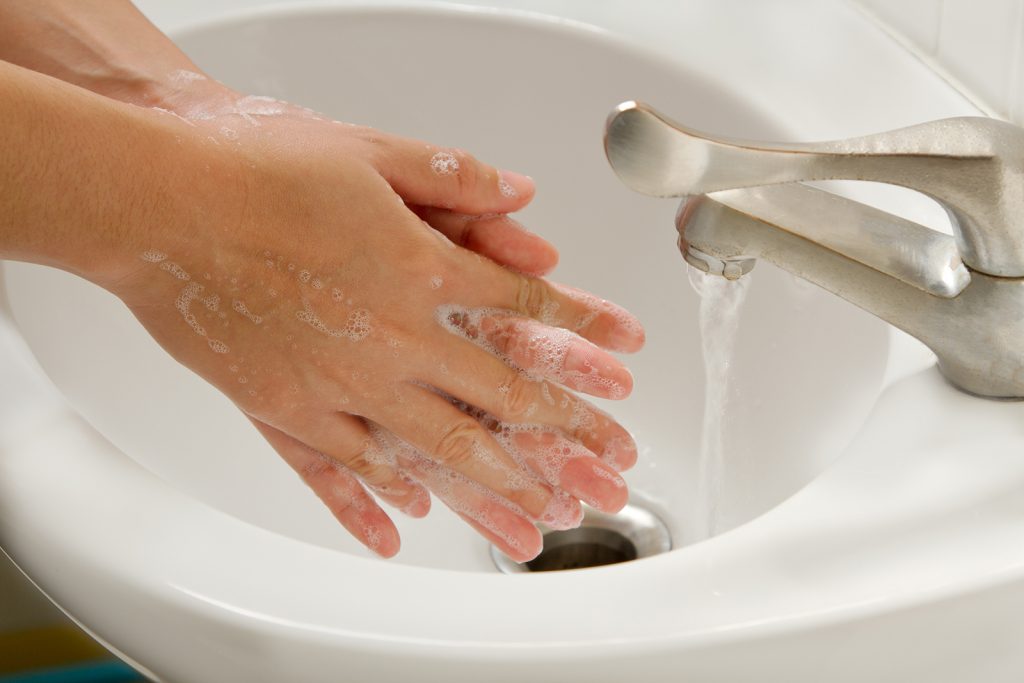August Is Immunization Awareness Month
Are Your Immunizations Up To Date?
As we age, our immune system declines making it harder to fight off infections. That means people 65+ years are more vulnerable to infection and
complications from diseases such as influenza, COVID-19, pneumonia and shingles. Many people think vaccines are for children. Or maybe they feel that since they are healthy, they do not need a vaccine. Be sure to speak with your doctor about your need for immunizations and work out a schedule that is best for you. What immunizations are important especially for seniors? There are five vaccines that seniors should consider:
Flu Vaccine
The flu vaccine decreases your chances of getting the flu. It is not 100% effective, but it is recommended for those over 65 years and people with certain medical conditions.
COVID-19 Vaccine
Getting the COVID-19 vaccine does not guarantee you will not get COVID. But it can reduce the severity of the disease. Those people who have been infected with COVID in the past may have some immunity, however it is important to discuss this with your physician.
Pneumonia Vaccine
Pneumonia is a very serious disease for people over 65 years. There are different vaccines to consider which can be given within the same year which can expand your protection against different bacteria.
Shingles
Shingles is a painful skin rash and blistering caused by the varicella zoster virus. If you’ve had chicken pox the zoster virus is “dormant” in your body. In some people it stays dormant forever. In others, the virus “wakes up” when disease, stress or aging weakens the immune system. The shingles vaccine is about 50% effective in protecting against shingles if given between the ages of 65 and 70. If given later, effectiveness decreases.
Tetanus and Pertussis
People think that the way to contract tetanus is to step on a rusty nail. Tetanus is caused by a bacteria found in soil, dust and manure. It enters the body through a break in the skin. So, you can get tetanus simply from working in the garden with a cut or a scrape. Pertussis, called whooping cough, is caused by a bacterium. Protection against these two deadly diseases is often given in a single vaccine. A booster should be given every 10 years to stay up-to-date.
Fight Back Against Infection
Controlling infections is no longer just the concern of hospitals and nursing homes. Especially since the Covid 19 pandemic, reducing infections and stopping the spread of disease in the home has become very important.
Germs Are Everywhere! Wash Your Hands!
Did you know that 80% of communicable diseases are transferred by touch? By touch, we mean touching food or touching one’s own mouth, eyes and nose. Dirty hands spread foodborne illnesses like Salmonella, E. Coli, Staph and diarrheal infection. Touching the face with dirty hands spreads illnesses like pneumonia, the cold and the flu.
It’s most important to wash hands before preparing food and after using the bathroom. Only 20% of people wash their hands before preparing food. Just under 75% of women and 50% of men wash hands after using the bathroom. Every time a toilet is flushed with the lid up, a fine mist of bacteria such as E. Coli and Staph is spread over an area of 6 square meters. Ugh!
Most bacteria is on the fingertips and under the nails so be sure to wash well, at least 15 to 20 seconds with clean water and soap! Then dry hands and use the towel to turn off the faucet.
Proper Handwashing Technique
Turn on faucet and get a comfortable temperature. Once the temperature is right you shouldn’t touch the faucet again. Wet hands. Wash hands for at least 15-20 seconds rubbing hands together and using friction. Dry hands and turn faucet off with the towel.
Waterless Hand Sanitizer
Only use hand sanitizer if hands not visibly soiled (for example: dirt, food, or other material). Apply a dime-sized amount of waterless hand sanitizer to the palm of one hand or use a waterless hand sanitizer wipe. Rub hands together covering all surfaces of hands and fingers. Rub until waterless hand sanitizer is absorbed and completely dry.
Smart Infection Control At Home
- Stay away from others who are sick, or if you’re sick, stay home for at least 24 hours after your fever is gone without the use of fever-reducing medicines.
- Wash hands often with soap and water, or an alcohol-based hand rub when soap and water is not available
- Intact skin is a major barrier to germs. Cover any cuts or abrasions with a waterproof dressing to protect them against germs.
- Practice respiratory etiquette and request others do the same. Cover coughs and sneezes with the inside of your arm, not your hands. Always dispose of used tissues in waste containers and wash your hands after coughing or sneezing.
- Avoid touching your eyes, nose and mouth. Germs are spread this way.
- Wash eating utensils and towels/bed linens thoroughly
- Don’t share combs, brushes, towels, toothbrushes, razors or other personal items
- Avoid clutter. Keep your home environment clean. Clean surfaces like counters, doorknobs and light switches.
It’s Flu Season
Get A Flu Shot Early
The flu season is always unpredictable. But it generally starts in September and peaks during the months from October through February. One thing is sure. Get your flu shot to protect yourself from getting the flu. The Centers for Disease Control (CDC) recommends an annual influenza vaccination for everyone 6 months and older.
Flu Symptoms
- Symptoms of the Flu
- Fever or feverish feelings and chills
- Cough/sore throat/runny or stuffy nose
- Muscle or body aches and or headache
- Fatigue or very tired
The best way to avoid the flu is to get a flu shot. Many people ask, “Will I get sick from the flu shot?”
Serious reactions to the flu shot are rare. The most common reaction in adults is soreness, redness or swelling at the spot where the shot was given. This usually lasts less than two days. This initial soreness is most likely the result of the body’s early immune response to a foreign substance entering the body. Less frequently people may experience a slight fever and aches. These symptoms begin after the shot and last 1 to 2 days.
Flu Can Be Dangerous
Flu is a contagious respiratory illness caused by influenza viruses. It causes mild to severe illness. Flu can result in hospitalization or death. Older people, children and others with an immune system deficiency are high risk for serious complications. Even if you are not high risk, get the flu shot anyway. You could pass the virus to someone and make that person very ill.
What’s In Your Flu Kit?
It’s Contagious!
Experts believe the virus is spread by droplets when sneezing, coughing or talking from up to 6 feet away.
The best protection from the flu is to get a flu shot!











Comments are closed.